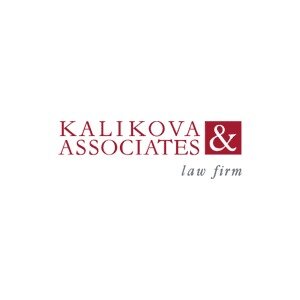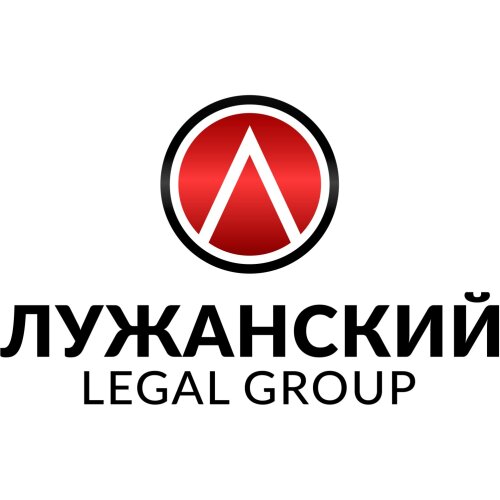Best Employer Lawyers in Bishkek
Share your needs with us, get contacted by law firms.
Free. Takes 2 min.
List of the best lawyers in Bishkek, Kyrgyzstan
About Employer Law in Bishkek, Kyrgyzstan
Employer law in Bishkek, Kyrgyzstan, encompasses a range of legal regulations that govern the employment relationship between employers and employees. It covers areas such as hiring, working conditions, employee benefits, termination, and workplace safety. As the capital city and major economic hub of Kyrgyzstan, Bishkek sees a diverse array of employment scenarios, from international corporations to local businesses, each subject to national labor laws and specific local regulations.
Why You May Need a Lawyer
There are several situations in which individuals or businesses in Bishkek may require legal assistance concerning employment law. Common scenarios include disputes over wrongful termination, allegations of workplace discrimination or harassment, challenges regarding employment contracts, and compliance with workplace safety standards. Additionally, drafting and reviewing employment contracts, managing layoffs, and ensuring that workplace practices comply with both national and local regulations often necessitate professional legal advice.
Local Laws Overview
The legal landscape for employers in Bishkek is primarily shaped by the Labor Code of Kyrgyzstan, which sets out the fundamental rights and obligations of both employers and employees. Key aspects of local laws that are relevant include the equality of all employees, specific requirements for employment contracts, guidelines regarding work hours and overtime, provisions for maternity and paternity leave, and mechanisms for conflict resolution. It's important for employers to also stay informed about any municipal regulations that may impose additional requirements specific to Bishkek.
Frequently Asked Questions
What are the basic rights of employees under Kyrgyz labor law?
Employees are entitled to fair wages, a safe working environment, nondiscriminatory practices, and specific leaves. Their rights are protected by the national Labor Code.
Do employment contracts need to be in writing in Bishkek?
Yes, employment contracts should be in writing to ensure clarity and legal compliance. They should detail the terms of employment, responsibilities, and rights of both parties.
What are the acceptable grounds for terminating an employee?
Grounds for termination include mutual agreement, employee’s initiative, end of a contract term, and legally justified reasons for dismissal, such as misconduct or redundancy.
How is workplace discrimination handled under Kyrgyz law?
Kyrgyz labor law prohibits workplace discrimination based on ethnicity, gender, age, disability, and other grounds. Employers must ensure equal treatment of all employees.
What are the regulations for overtime work?
Overtime work is permissible but must be documented and compensated at a higher rate, usually 1.5 times the regular wage, unless otherwise stated in a collective agreement.
Are there specific guidelines for workplace safety?
Employers are required to ensure a safe working environment by adhering to local and national safety standards, regular safety audits, and providing appropriate safety training to employees.
How does the law address maternity and paternity leave?
Female employees are entitled to maternity leave, typically 126 days, with a portion covering pre- and post-birth periods. Paternity leave may also be granted, subject to specific conditions.
What procedures exist for resolving employment disputes?
Employment disputes can be resolved through internal mediation, labor inspections, or through court proceedings if necessary. Kyrgyzstan’s legal framework provides structured mechanisms for dispute resolution.
How do bonuses and raises get regulated?
Bonuses and raises are often stipulated in employment contracts or collective agreements. They are typically performance-based or linked to company profits.
What responsibilities do employers have when it comes to employee training?
Employers are responsible for providing necessary training for safety, skills development, and promoting career advancement as applicable to the role and industry standards.
Additional Resources
For further assistance, individuals can contact the Ministry of Labor and Social Development of Kyrgyzstan, the Bishkek City Labor Inspectorate, or the Kyrgyz Bar Association for specialized legal counsel. These organizations provide resources, guidance, and support on employment matters.
Next Steps
If you require legal assistance in employer-related matters, start by documenting any relevant information and evidence supporting your situation. Reach out to a qualified lawyer specializing in labor law to explore your options. Consider contacting local legal aid organizations if you require assistance in finding suitable legal representation or need further information on your rights and obligations.
Lawzana helps you find the best lawyers and law firms in Bishkek through a curated and pre-screened list of qualified legal professionals. Our platform offers rankings and detailed profiles of attorneys and law firms, allowing you to compare based on practice areas, including Employer, experience, and client feedback.
Each profile includes a description of the firm's areas of practice, client reviews, team members and partners, year of establishment, spoken languages, office locations, contact information, social media presence, and any published articles or resources. Most firms on our platform speak English and are experienced in both local and international legal matters.
Get a quote from top-rated law firms in Bishkek, Kyrgyzstan — quickly, securely, and without unnecessary hassle.
Disclaimer:
The information provided on this page is for general informational purposes only and does not constitute legal advice. While we strive to ensure the accuracy and relevance of the content, legal information may change over time, and interpretations of the law can vary. You should always consult with a qualified legal professional for advice specific to your situation.
We disclaim all liability for actions taken or not taken based on the content of this page. If you believe any information is incorrect or outdated, please contact us, and we will review and update it where appropriate.











